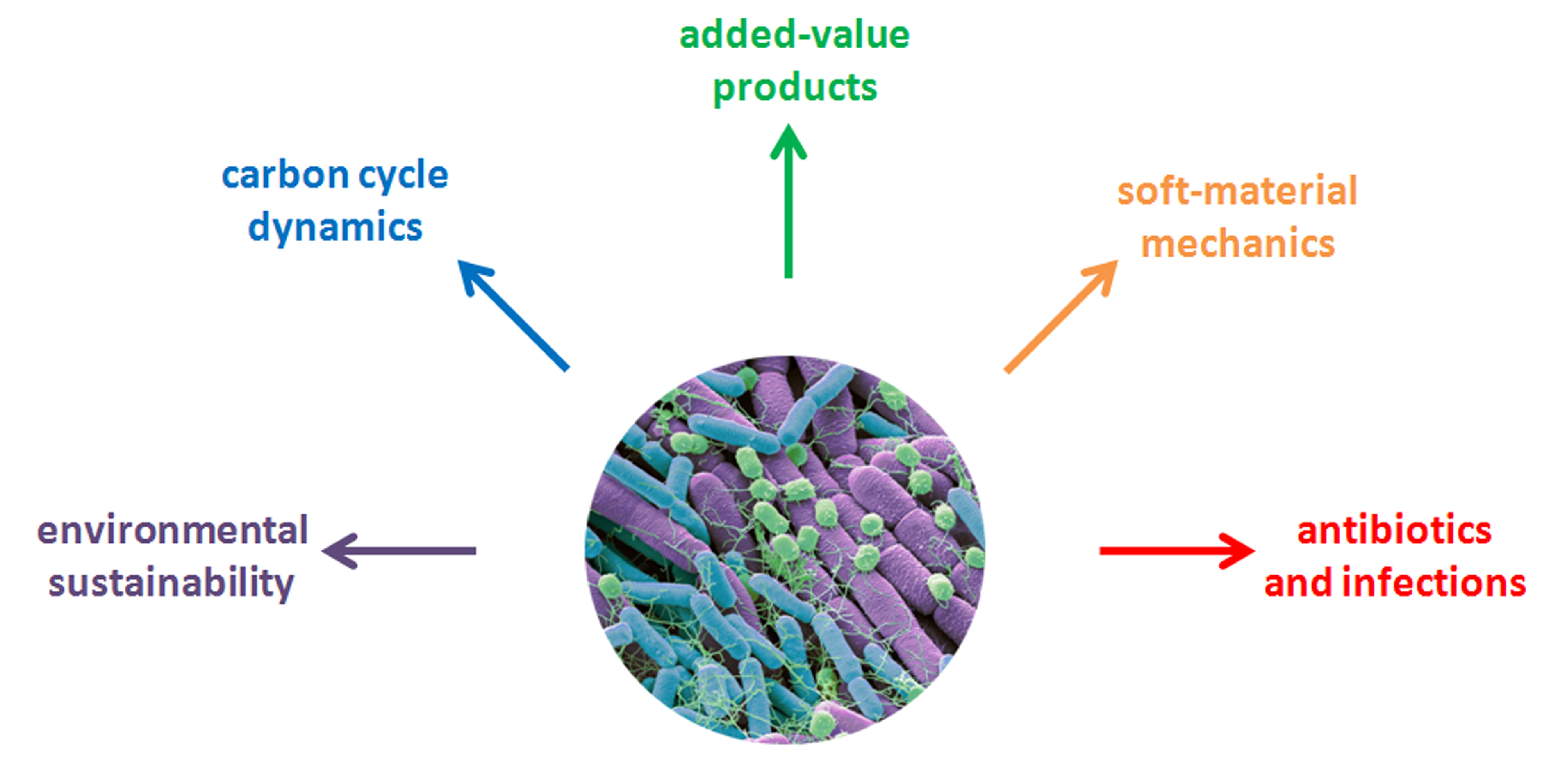2024 AIChE Annual Meeting
(4ex) Multiscale Modeling of Complex Microbial Processes in Bioengineering and the Environment
Author
My scientific research is primarily focused on processes that involve the formation and evolution of microbial biofilms across multiple spatial and temporal scales. Biofilms are interfacial communities of microbes that thrive into matrices of extracellular biopolymers. They are extraordinarily complex and exhibit multiscale dynamics, soft material behavior, and intriguing cell-cell interactions like quorum sensing and gene transfer. Based on a three-pronged approach that involves multiscale modeling, computer simulation, and microscale experiments, my research activities aim at improved mechanistic understanding -and ultimately engineering- of the role and functions of biofilms in biological and environmental applications.
During my PhD, I investigated the impacts of bacterial biofilms on the fate of organic contaminants in soils and aquifers. Guided by visualization experiments in glass microfluidic networks, I developed a novel computer simulator of biofilm dynamics in porous media that integrates continuum-based approaches for fluid flow and mass transport with individual-based approaches for biofilm growth and detachment. Associated work shed light on the mechanisms of biofilm metastasis and soil bioclogging.
In my early postdoc, motivated by the resistance of bacterial persisters to antibiotics, I developed new multiscale theoretical models for interstitial flow, poroelasticity and diffusive transport of nutrients and bioactive agents in cellular biological media. By combining formal upscaling with the particle-in-cell method, I established a consistent link between cell-scale physics and structure and biomaterial-scale properties.
Over the last years, I work on the interactions between marine bacteria and particulate organic matter in marine ecosystems, with a specific focus on the microbiome dynamics and biogeochemical cycles of carbon and nutrients. By securing funds from the Gulf of Mexico Research Initiative and the European Marie Curie Actions, I established a synergy between the Massachusetts Institute of Technology and the University of Patras towards understanding the mechanisms and quantifying the rates of hydrocarbon droplet biodegradation and plume reshaping via a creative fusion of microscale experiments and computational modeling. In that vein, we are developing novel particle-based models that can parameterize Earth System models for improved forecasting of particulate matter transport, nutrient transformations and microbial growth dynamics in the oceans.
Research Interests:
♦ Transport phenomena in active multiphase systems.
♦ Microbial biophysics; biofilm formation at simple and complex interfaces.
♦ Sustainable process engineering in aquatic ecosystems (marine carbon dioxide removal, mCDR).
♦ Multiscale modeling and simulation (mechanistic and data-driven).
♦ Microfluidic technologies for biological and environmental applications.
♦ Optical microscopy and quantitative imaging methods.
My research profile has been significantly transformed at MIT through the acquisition of experimental skills on microfluidic technologies (lithography, 3D printing) and advanced microscopy (confocal imaging, optical sectioning). The combination of my background on computational modeling with theses microscale technologies enables an interdisciplinary approach to both curiosity-driven and impact-driven research on biofilms.
Teaching Interests:
♦ Transport phenomena in active biological systems.
♦ Sustainable environmental process engineering.
♦ Applied mathematics, computer programming and scientific computing.
♦ Microfabrication and microfluidics technologies for bioengineering and environmental processes.
Teaching and mentoring are the internal drivers in my pursuit of a professorship, instead of a position in research or industry. For several years, I have served as teaching assistant (University of Patras) and guest lecturer (MIT). I am prepared and eager to teach chemical engineering courses at both the undergraduate and graduate levels.
Selected publications:
Kapellos GE, Eberl HJ, Kalogerakis N, Doyle PS, Paraskeva CA. Impact of microbial uptake on the nutrient plume around marine organic particles: high-resolution numerical analysis. Microorganisms, 10(10):2020 (2022).
Kapellos GE, Alexiou TS, Payatakes AC. A multiscale theoretical model for fluid flow in cellular biological media, International Journal of Engineering Science 51:241-271 (2012).
Kapellos GE, Alexiou TS, Payatakes AC. Hierarchical simulator of biofilm growth and dynamics in granular porous materials, Advances in Water Resources 30(6-7):1648-1667 (2007).
